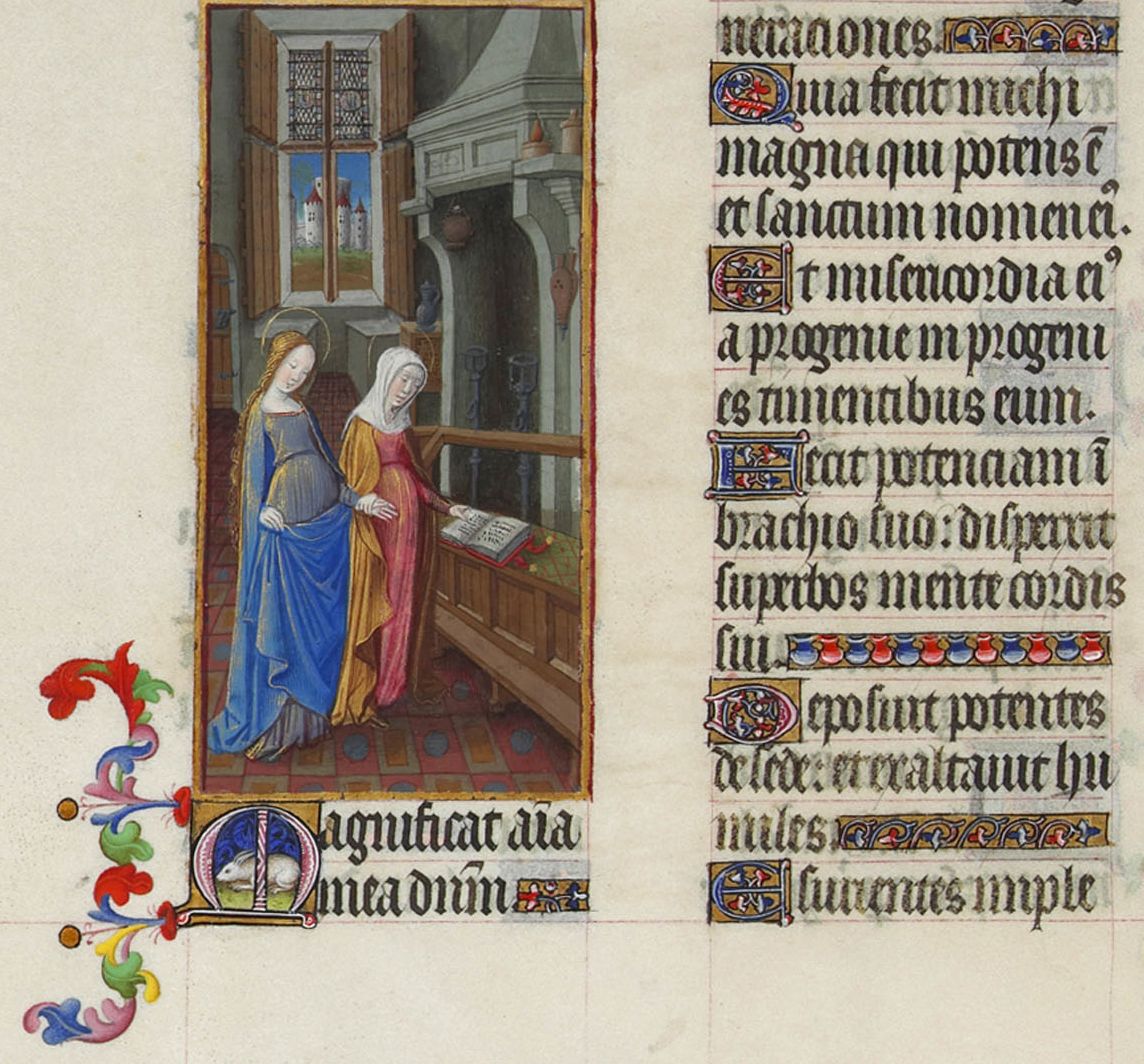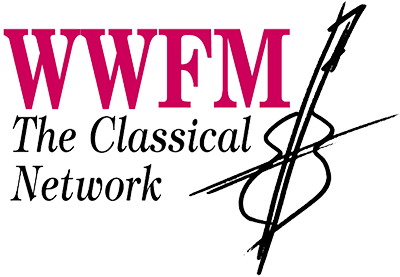
Wednesday Update, 12/5: It’s the eve of the Feast of St. Nicolas, and Steve Siegel has penned a wonderful preview of the concerts. It’s going to be in the Morning Call, appropriately, in tomorrow’s issue. He gives an excellent description of Britten’s St. Nicolas, with lots of great quotes from our conductor, Greg Funfgeld. He also previews Bach’s ecstatic Magnificat, which will be the focus of this post (having waxed as rhapsodic as is reasonable about the Britten in my previous post).
My introduction to the text of the Magnificat (Mary’s beautiful song of praise found in the Luke (1:46-55)) as a child. I had joined the Legion of Mary in my Roman Catholic parish, partly out of curiosity, and partly because I had a small crush on one of my fellow legionaries (but that’s another story). The Legion included an expectation of devotional acts, as well as service projects, on a weekly basis. Part of the devotions was the saying of the rosary, which concluded with a recitation of the Magnificat. Those words were immediately imprinted upon my imagination. Later, as a budding church musician in the 8th grade, I was called upon to play for a service of Evening Prayer. One of the canticles sung at evening prayer is the Magnificat, and the words took on new meaning when heard in the simple setting of music we sang.
Soon after that, I heard the Bach Choir for the first time, at the tender age of 14, and one of the pieces on the program was the Magnificat. Having been blown away (almost literally, as well as figuratively) by the euphoric performance of the Sanctus from the Mass in B Minor that opened the program, I was struck by the Magnificat’s unparalleled text painting, though I didn’t know there was even a term for it, at the time. Each compact movement (none are more than a couple minutes long) perfectly expresses, in music, the content of the text. The overflowing (magnifying) melismas that begin the opening chorus, the rejoicing of the spirit in the Et exultavit, the the humble devotion of the Qui respexit, the melismatic and contrapuntal totality of the Omnes generationes (a kind of musical representation of infinity); all contribute to the beautiful images the piece evokes. The piece’s text painting continues through the whole work – each movement a jewel of devotion and imagination. Luther perceived the Magnificat as a testimony to Mary’s faithfulness and obedience. In Bach’s lively imagination, it seems something more – a rhapsodic testimony of God’s love for God’s people, and a very personal response. At the end of the work is its crowning moment, in the Gloria Patri. The choir sings each statement of the GP contrapuntally, each voice moving in triplets (rhythmic figures of three notes to the pulse), to invoke each member of the Holy Trinity about whom the choir is singing. When the words shift to the Holy Spirit, the music expands, and, for a few bars, it sounds as though the entire cosmos is singing the music of the spheres. It’s an aesthetically and spiritually arresting moment, and Bach is left with only the “As it was in the beginning, is now, and ever shall be, world without end. Amen” text snippet left. Having drawn out a verse of praise to the Holy Spirit that concludes with such grandeur, one can almost sense the sparkle in Bach’s whimsical eyes when he recapitulates the music from the beginning of the piece, quite literally, as it was in the beginning. Such wit and humor dispel the notion of Bach as “fuddy duddy” that arises from time to time from certain, unenlightened quarters. Like Britten’s St. Nicolas, Bach’s Magnificat crackles with joy, vivid drama, photo-realistic text painting, and an unsurpassed sense of spirituality.
One of the features of this performance is that the Bel Canto Children’s Chorus will sing the Suscepit Israel, the most tender movement of the work. Bach weaves three parts of counterpoint (sopranos I and II, and alto) over a gently pulsing basso continuo, with a devout oboe melody gently ringing out over the texture. I’m excited to hear the Bel Canto singers offer this movement – they sounded glorious on Monday night as we rehearsed the Britten.
This morning, Greg Funfgeld joined WVIA’s wonderful Erika Funke on the phone for a conversation to preview this weekend’s concerts. WVIA’s archived the lively conversation










































